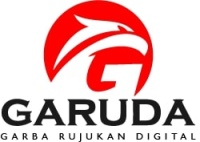The Relationship between Education Level and Mother's Occupational Status with the Nutritional Status of Preschool Children in Kalanganyar District, Lebak, Banten
Keywords:
Educational Status, Occupational Status, Nutritional Status, PreschoolersAbstract
Background: Preschoolers are prone to nutritional problems because their health is still unstable while their nutritional needs are increasing. Based on RISKESDAS data for Lebak Regency in 2018, the prevalence of under-fives with malnutrition was 19.6%, normal 71.91%, and more than 8.49%. The role of the mother in nurturing, caring for, and sharpening the child during its growth and development is very important, especially as a regulator of nutritional intake which is related to the mother's education level, mother's occupation, family income level, and mother's level of nutrition knowledge. Method: This study uses a quantitative research type with correlation analysis. The population of this study was all mothers with preschool-age children in Kalanganyar District, Lebak, Banten. 50 samples were taken through quota sampling. Data collection was carried out through interviews using questionnaires, and direct measurements of BB and TB. Data analysis was performed with the chi-square test. Results: 64% of mothers have a high level of education, 92% of mothers do not work, and 72% of preschoolers have normal nutritional status. The statistical test results for the relationship between the mother's education level and the nutritional status of preschoolers obtained p=0.004 (p<0.05), while for the relationship between the mother's employment status and the nutritional status of preschoolers it was found p=0.079 (p>0.05). Conclusion: There is a relationship between the mother's education level and the nutritional status of preschoolers and there is no relationship between work status and the nutritional status of preschoolers in Kalanganyar District, Lebak, Banten. In the view of Islam, Allah SWT forbade mankind not to leave weak offspring.References
Fikawati, S., Syafiq, A. & Veratamala, A., 2017. Gizi anak dan remaja. Depok: PT Raja Grafindo Persada.
Gibson, R. S., 2005. Principles of Nutritional Assessment. 2nd ed. New York: Oxford University Press Inc.
Istiany, A. & Rusilanti, 2013. Gizi Terapan. Bandung: PT Remaja.
Kesari, A. & Noel., J. Y., 2022. Nutritional Assessment. Treasure Island: StatPearls Publishing.
Khomsan, A., 2012. Ekologi Masalah Gizi, pangan Dan Kemiskinan. Bandung: Alvabeta.
Kliegman, R. M., 2020. Nelson textbook of pediatrics. 21st ed. Philadelphia: Elsevier.
Niska, Devriany, A. & Fitrah, 2017. Hubungan Antara Tingkat Pendidikan Ibu dan Status Pekerjaan Ibudengan Status Gizi Berdasarkan BB/TB pada Anak Usia Prasekolah. Jurnal Kesehatan Poltekkes Kemenkes RI Pangkalpinang, 5(2), pp. 4-5.
Notoatmodjo, S., 2018. Metodologi Penelitian Kesehatan. Jakarta: PT. Rineka Cipta.
Nurmaliza & Herlina, S., 2019. Hubungan Pengetahuan dan Pendidikan Ibu Terhadap Status Gizi Balita. Jurnal Kesmas Asclepius, 1(2).
Paramashanti, B. A., 2019. Gizi Bagi Ibu dan Anak Untuk Mahasiswa Kesehatan dan Kalangan Umum. Yogyakarta: Pustaka Baru.
Pietrasik, T., 2016. World Health Organization. [Online]
Available at: https://www.who.int/news-room/fact-sheets/detail/headache-disorders
[Accessed 15 February 2022].
Pritasari, Damayanti, D. & Lestari, N. T., 2017. Gizi Dalam Daur Kehidupan. s.l.:Kementrian Kesehatan RI.
Putri, R. F., Sulastri, D. & Lestari, Y., 2015. Faktor-Faktor yang Berhubungan dengan Status Gizi Anak Balita di Wilayah Kerja Puskesmas Nanggalo Padang. Jurnal Kesehatan Andalas, 4(1), pp. 257-260.
RI, K. A., 2009. Kedudukan dan Peran Perempuan (Tafsir Al-Qur'an Tematik). Jakarta: Lajnah Pentashihan Mushaf Al-Qur?an.
RI, K. K., 2019. Riset Kesehatan Dasar 2018. Jakarta: Lembaga Penerbit Badan Penelitian dan Pengembangan Kesehatan.
RI, K. K., 2019. Riset Kesehatan Dasar Laporan Provinsi Banten 2018, s.l.: Lembaga Penerbit Badan Penelitian dan Pengembangan Kesehatan.
Rusilanti, M. D. & Yulianti, Y., 2015. Gizi dan Kesehatan Anak Prasekolah. Bandung: PT Rosada Karya.
Santrock, J. W., 2011. Perkembangan Anak Jilid 1. Ketigabelas penyunt. Jakarta: Erlangga.
Schlenker, E. . D. & Gilbert, J., 2015. Williams’ Essentials of Nutrition and Diet Therapy. 11th ed. Philadelphia: Elsevier.
Sediaoetama, A. D., 2006. Ilmu Gizi untuk Mahasiswa dan Profesi Jilid I. Jakarta: Dian Rakyat.
Sediaoetama, A. D., 2009. Ilmu Gizi untuk Mahasiswa dan Profesi Jilid II. Jakarta: Dian Rakyat.
Seftianingtyas, W. N., 2020. Hubungan Pekerjaan dan Pendidikan Ibu Dengan Status Gizi Balita Di Puskesmas Meo-Meo Periode 2018. JURNAL ILMIAH KESEHATAN BPI, IV(1).
Septikasari, M., 2018. STATUS GIZI ANAK DAN FAKTOR YANG MEMPENGARUHI. pertama ed. Yogyakarta: UNY Press.
Sujana, I. W. C., 2019. FUNGSI DAN TUJUAN PENDIDIKAN INDONESIA. Jurnal Pendidikan Dasar Institut Hindu Dharma Negeri Denpasar, 4(1), pp. 2-6.
Sulistyoningsih, H., 2011. Gizi Untuk Kesehatan Ibu dan Anak. Yogyakarta: Graha Ilmu.
Thamaria, N., 2017. Penilaian Status Gizi. s.l.:Kementrian Kesehatan RI.
UNICEF, WHO & Group, W. B., 2021. Levels and trends in child malnutrition, s.l.: s.n.
Watson, F. et al., 2019. Pembangunan Gizi Di Indonesia. Jakarta: Kementerian PPN/Bappenas.
Wijaya, S. M., Anggraini, D. I. & Arie, N., 2017. Gizi anak : usia sekolah dan pra sekolah, Bandar Lampung: CV. Anugrah Utama Raharja.

 Maulida Nurkhalisa Malik
Maulida Nurkhalisa Malik
 Universitas YARSI
Universitas YARSI

 TEMPLATE
TEMPLATE


